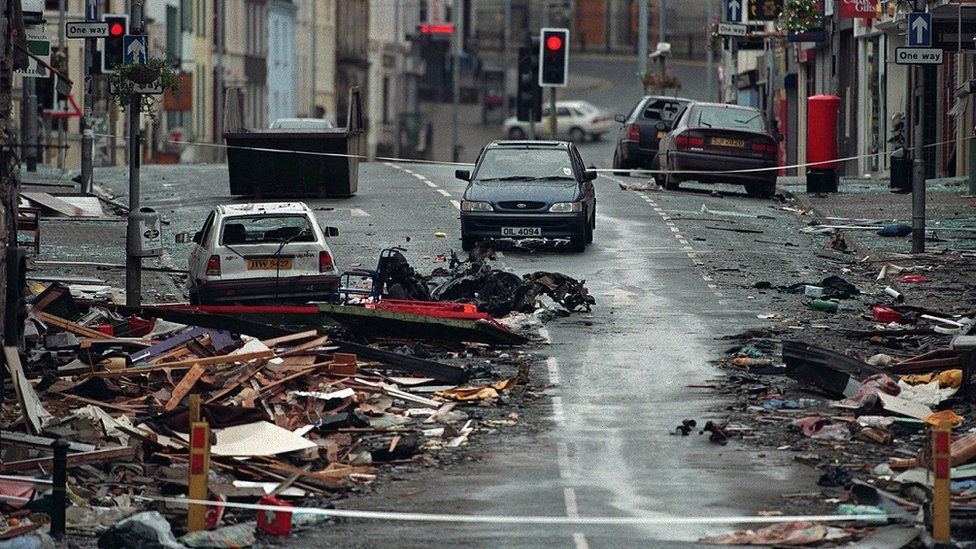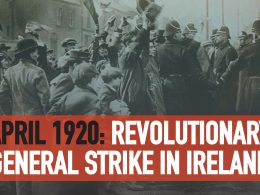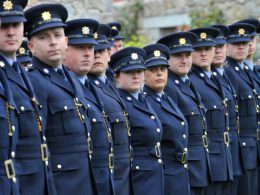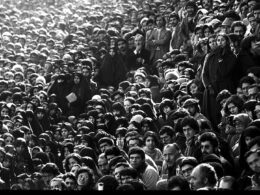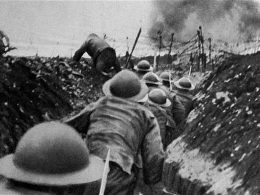By Peter HaddenThe following article, written by Peter Hadden, was published in the aftermath of the horrific bombing of Omagh on 15 August 1998. This atrocity was carried out by the Real IRA and resulted in the deaths of 29 people.
AN UNPRECEDENTED wave of anger and revulsion has swept across Northern Ireland in the aftermath of the Omagh bomb. In Omagh virtually everything shut down for a week as the town braced itself for the agony of the funerals.
On the Monday morning shop stewards approached the management of the Desmonds factory, one of the biggest employers in the town, and the result was the closure of the factory for a week. In the town centre only newsagents and florists stayed open. A vigil organised by local community activists on Tuesday evening, and held in a car park close to where the bomb went off, drew a huge crowd.
If people in Omagh were understandably dazed and stunned, elsewhere people were shocked, saddened, but also very angry. Socialist Party members put up a stall in Belfast city centre on Monday with a petition demanding a one-day general strike. No sooner was the table set up than it was surrounded by people wanting to sign and to buy copies of the special bulletin which had been produced on the bomb. In a little under two hours 600 bulletins were sold. On the Tuesday and Wednesday there was a similar response with a total of 1,500 bulletins sold and around 2,000 signatures gathered in a total of four and a half hours.
The reaction to the one-day strike call was that this was the minimum which should be done. Support for this call was interspersed with comments such as ‘put them all in a room and set a bomb off’, and ‘round them up and hang them’. Significantly these comments and this anger came from both Catholics and Protestants. There was not a single sectarian comment. The nature and scale of the atrocity has transcended the Troubles and created a common sense of outrage.
A similar mood of revulsion has swept the South. This has left the ‘real IRA’ and all others who advocate a continuation of ‘armed struggle’ completely isolated. In Dundalk the two figures most associated with the 32 County Sovereignty Committee, the political arm of the ‘real IRA’, have fled their home fearing they would be burnt out. The only Sinn Fein councillor who defected to the 32 County Committee sits on Omagh Council. At a special council meeting on Monday morning he refused to condemn the bomb. The reaction of many people in Omagh has been not just that he should step down from the council, but that he should leave the town.
This could well mean the end of this group and of the military campaigns of the other dissident republican factions. Even the Irish National Liberation Army (INLA) has been brought to the verge of a ceasefire, their main political spokesperson commenting that there is no longer any basis for armed struggle.
The British and Irish governments have responded by proposing new ‘anti-terrorist’ legislation. The Southern Dail is to be reconvened to discuss such measures as the removal of the right to silence for terrorist offences and longer periods in custody without charge. These measures will get a broad measure of support, such is the anger at the bombing. However it should be remembered that this is what the then Labour government did in Britain after the Birmingham bombs in 1974. The emergency legislation then rushed through did not halt attacks. All it did was create new injustices which in turn fuelled the problem.
New harsh measures by the state will not prevent outrages like Omagh. What this week has shown is that there is another and much more effective way of stopping such attacks and dealing with the whole problem of sectarian violence. A mass movement has developed which has already isolated and paralysed the ‘real IRA’. This movement has developed from below, without any form of leadership.
Had the trade union leadership faced up to the responsibility of their position and called a one-day strike on the Wednesday or the Thursday following the bomb then Northern Ireland, and possibly the South as well, would have ground to a stop. We would have seen a demonstration outside Belfast City Hall which would have dwarfed the various huge sectarian gatherings which have been held there from time to time. In other towns it would have been the same.
This movement could have continued until every paramilitary organisation, loyalist and republican, declared an immediate, complete and unconditional ceasefire. From this it could have gone on to ensure that the firm imprint of a united working class is placed on the peace process. The sectarian politicians who maintain the divisions which lead to horrors like Omagh could have been challenged. Northern Ireland could have been transformed.
Instead the trade union leadership refused to take any independent action. The Northern Ireland Committee of the Irish Congress of Trade Unions (ICTU) met on the Monday and again on the Wednesday and decided not to call a strike, not even to call any separate rallies. The officers of NIC-ICTU went to Omagh to lay wreaths, but with no call for any action. The only guidance given to those who want to express their sympathy and their anger has been a joint statement with the employers and an encouragement to people to support the vigils and the one-minute silence called by the churches.
Socialist Party members handing the petition calling for a one-day strike to the ICTU offices met with only the vaguest of answers to the question what the trade unions intended to do. In Mid-Ulster the local Socialist Party quickly took the initiative and, through the local trades council and a community group, called a lunchtime rally for the Friday following the bomb. A request for support and a speaker from the ICTU was refused.
Socialist Party members in Omagh, some of whom had to spend the night of the bomb working in the horror of the local hospital, are considering bringing local shop stewards and community activists together to hold a rally sometime after the funerals. The idea of a local ‘people’s forum’ to discuss the full significance of the bomb has also been raised.





